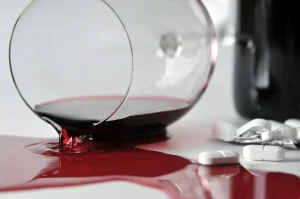
The Centers for Disease Control and Prevention (CDC) and other federal agencies define that as one drink per day or less for women and two drinks per day or less for men. With all of this in mind, the risks of drinking alcohol when you have type 2 diabetes may outweigh any benefits. It’s important to keep your personal health top-of-mind, right along with the advice of your healthcare provider. But even those who have type 2 diabetes who take medication may be vulnerable to hypoglycemia unawareness, even though their blood sugar levels are more likely to skew high than low. Unlike protein, fat, or carbohydrate, alcohol doesn’t require insulin to provide energy to the body.

Weight Loss
- Combining the blood-sugar-lowering effects of the medication with alcohol can lead to hypoglycemia or “insulin shock,” which is a medical emergency.
- Actos is used to manage blood sugar levels in adults with type 2 diabetes.
- In contrast, a limited number of studies have reported deleterious effects of alcohol on β-cells, in which alcohol inhibited the insulin secretion [25].
- It is a good idea for them to talk with a doctor so that they thoroughly understand the risks involved.
- There are several risk factors for type 2 diabetes, these include your family history, age and ethnic background.
Those observations suggest that the reduced levels of vitamin E in alcoholics actually may have harmful long-term effects. Basal glycogen content in skeletal muscle has most often been reported to be unaltered by chronic alcohol ingestion [62,63], but some studies have shown elevated glycogen content [64] in the absence of overt symptoms of alcoholic myopathy. Neither acute alcohol intoxication [25] nor chronic alcohol feeding for 6 weeks in rats alters basal muscle glycogen content [65], despite the ability of acute alcohol to antagonize glucose-stimulated glycogen repletion in skeletal muscle [66]. Glucose homeostasis is critical for normal functioning of the central nervous system and cells which have an obligatory requirement for this metabolic substrate. Acute and chronic alterations in the prevailing glucose concentration (i.e., hypoglycemia and hyperglycemia) can adversely impact cellular and organ function.
Alcohol’s Effects on Blood Sugar Levels of Diabetics
- ALWAYS consume alcohol with a meal or snack that contains carbohydrates.
- People with diabetes have to be very careful when it comes to drinking alcohol.
- This article will explore the safety of alcohol consumption during semaglutide treatment, providing insights into how to navigate these lifestyle changes effectively.
- If you have questions about consuming alcohol while taking Actos, talk with your doctor or pharmacist.
But when you drink alcohol, the liver is busy breaking the alcohol down, so it does a poor job of releasing glucose into the bloodstream. This can lead to a drop in blood sugar levels if you are drinking alcohol on an empty stomach. If you are managing your diabetes with diet and exercise alone, drinking alcohol can stil increase your risk of low blood https://ecosoberhouse.com/ sugars. Your body processes alcohol differently than most foods and beverages. And if you have type 2 diabetes, drinking alcohol may have some benefits—such as lowering glucose levels in the blood—and some real risks, like driving glucose levels down too low. Alcohol can cause blood glucose levels to rise or fall, depending on how much you drink.
- Once a person consumes it, it is rapidly absorbed by the stomach and small intestine and enters the bloodstream.
- Each alcoholic beverage takes between 1 and 1.5 hours to finish processing in the liver.
- The degree of agreement between reviewers was determined using the Cohen and Fleiss κ (21) statistics.
- Ketoacidosis, which occurs primarily in diabetics, is a condition characterized by excessive levels of certain acids called ketone bodies (e.g., acetone, acetoacetate, and β-hydroxybutyrate) in the blood.
- People who frequently consume a lot of alcohol can wipe out their energy storage in a few hours.
Alcohol consumption guidelines
Drinking alcohol may affect your blood sugar levels, interact with diabetes medications, and contribute to complications. But drinking a moderate amount of certain types of alcohol, such as red wine, may be safer. Acute alcohol intoxication also produces whole-body insulin resistance in rats [12,116] and the alcohol effect appears to be dose-dependent [117,118,119]. As the alcohol-induced impairment was recapitulated by t-butanol (a non-metabolizable alcohol) and not antagonized by 4-methylpyrazole, the insulin resistance was likely mediated by alcohol and not one of its oxidative metabolites [117].
Among their many functions, insulin and glucagon regulate the conversion of fat molecules (i.e., fatty acids) into larger molecules (i.e., triglycerides), which are stored in the fat tissue. In the absence of insulin, the triglycerides are broken down into free fatty acids, which are secreted into the bloodstream and delivered to the liver. The liver normally re-incorporates free fatty acids into triglycerides, which are then packaged and secreted as part of a group of particles called very low-density lipoproteins (VLDL). In patients with ketoacidosis, however, the liver metabolizes the incoming free fatty acids in an additional, unusual way. Under the influence of excess glucagon, some of the free fatty acids are converted to ketone bodies and secreted into the blood, causing severe health consequences.
- For example, GLUT4 protein in the plasma membrane fraction of the gastrocnemius, but not in whole muscle homogenate, was reduced in alcohol consuming rats [14,57].
- So yes, you can still drink, but you need to be aware of how it can affect your body and how to manage this.
- For instance, a standard 5-ounce (150-mL) glass of white wine also provides 3.8 grams of carbs (22).
- Accordingly, physicians who treat diabetics known to consume large amounts of alcohol must be aware of the risk of alcoholic ketoacidosis in those patients.
That effect has been observed in both type 1 and type 2 diabetics as well as in nondiabetics (Arky and Freinkel 1964). Hypoglycemia can have serious, even life-threatening, consequences, because adequate blood sugar levels are needed to ensure brain functioning. Despite the consistent observation that acute and chronic alcohol impairs in vivo-determined IMGU by muscle, there is little consensus on the mechanism underlying the insulin resistance. Alcohol may theoretically blunt insulin action at a number of recognized regulatory steps including PI3K/AKT signal transduction and/or GLUT4 translocation [134].
You might want to know whether it’s safe to drink alcohol with diabetes, and how much is OK. It acts by inducing an unpleasant physical response (e.g., nausea and vomiting) after alcohol consumption. Neuropathy, in addition to other factors (e.g., vascular disease in the penis or altered hormone levels), also may contribute to impotence, which is a common and troublesome complication in diabetic men.


So yes, you can still drink, but you need to be aware of how it can affect your body and how to manage this. For example, drinking can make you more likely to have a hypo, because alcohol interferes with your blood sugar levels. It can affect your weight too, as there can be a lot of calories in alcoholic drinks.

Alcohol consumption can exacerbate the diabetes-related lipid abnormalities, because numerous studies have shown that heavy drinking can alter lipid levels even in nondiabetics. Alcohol can induce several types of lipid alterations, including elevated triglyceride levels in the blood (i.e., hypertriglyceridemia), reduced levels of low-density lipoprotein (LDL) cholesterol, and elevated levels of high-density lipoprotein (HDL) cholesterol. Skeletal muscle represents the largest body depot responsible for IMGU [130,131].
2. Whole-Body Basal Glucose Flux
They can also help you understand what to do if you have symptoms of hypoglycemia. ACE inhibitors can enhance the effect of Actos, diabetes and alcohol which works by lowering your blood sugar. Using an ACE inhibitor with Actos can raise your risk for hypoglycemia as a side effect.

 Cart is empty
Cart is empty